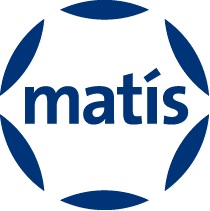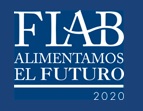| Matis | http://www.matis.is | ||
 |
Matis is governmentally owned company in doing research and development in food science and biotechnology with the overall aim of improving competitiveness of food production and processing in Iceland. Matis has about 100 employees and annual turnover of about 8 million euros. The company has experts and facilities in chemical, physiochemical analysis of food, traditional and biotechnological methods in food microbiology, food engineering, food processing and product development. Matis has vast experience in food safety and hygienic procedures and consultation in food quality assurance and training. MATIS has coordinated and participated in numerous EU funded projects, including BADMINTON, TraceFish, FQLM, QIMIT, CODLIGHT TECH, EuroFIR, QALIBRA, SeafoodPlus, CHILL-ON, Fish and Chips, Marine Genomics Europe, SalseaMerge and EcoFishMan. Matis has participated in innovative procedures in cleaning and disinfection for the food industry in Iceland and internationally. Matis holds ISO17025 accreditation for analytical services assessing quality and safety of foodstuffs and results of cleaning and disinfection methods. Matis is a national reference laboratory on several food safety analytical methods. BETELGEUX SL
|
http://www.betelgeux.es
|
|
 |
BETELGEUX, S.L. is a SME located in Gandia, specialised in food hygiene, bringing innovative and effective solutions in the following fields: Cleaning and disinfection in food industry: manufacture of cleaning and disinfection chemical products, and trade of dosing and application equipment for sanitation; Food, water, surfaces and air microbiology. Our services are certified within the UNE EN With more than 25 years of experience in the sector, we have a long formative tradition in topics related to prevention of occupational risks, hygiene, quality and food safety. Throughout these years, plans and training courses have been designed, directed and executed in many industries of the agrifood-processing sector, including the following matters: food safety, occupational risks, HACCP, etc. The rate of current growth of the company demands the permanent training of the professional team. Betelgeux's corporate culture is an enormously favoring element for the process of training, innovation and development. FIAB - FEDERACION ESPANOLA DE INDUSTRIAS DE LA ALIMENTACION Y BEBIDAS
|
http://www.fiab.es/es
|
|
 |
The Spanish Food and Drink Industry Federation (FIAB) was created in 1977 to represent, through a single organisation and a single voice, the Spanish industry of food and drinks, the first industrial sector of our country. Presently, it encompasses 46 sector associations representing nearly 90% of the sector’s turnover. Its main activity is informing the sector about news that might affect their performance and representing their interests before different administrations and decision-making bodies at national, European and international level. Its activity focuses on the following areas: internationalisation, innovation and technological development, legislation and food safety, agricultural policy, environment, nutrition, training, taxes and communication, always aiming at improving the industry’s competitiveness. In order to be able to represent the industry’s interests in the EU sphere, since 1983 FIAB maintains a permanent delegation in Brussels. Likewise, since 1986 it is a full member of the Food Drink Europe (FDE) a business sector organization of European scope. FEDERALIME - FEDERAZIONE ITALIANA DELL INDUSTRIAALIMENTARE ASSOCIAZIONE
|
http://www.federalimentare.it
|
|
 |
FEDERALIMENTARE (Federazione Italiana dell’Industria Alimentare), with its 19 adhering Associations, represents the interests of the Italian Food and Drink Industry, whose turnover is 113 billions euros (data from 2006) involving directly 6.500 companies (mostuly SMEs) and 256.000 employees. It pursues competitiveness and development of the Italian Food and Drink Industry, guarantees quality and food safety, promotes a policy of the entire food chain of the Italian products evermore aware of consumer needs for quality and information. FEDERALIMENTARE is member of FoodDrinkEurope and Confindustria (Confederation of the Italian Industries). BETI – BALTIC EDUCATION TECHNOLOGY INSTITUTE
|
http://www.beti.lt
|
|
 |
BETI was founded in 2003 by an active team of professionals who have been working in the field of ICT and education technologies for more than 15 years. While implementing different activities in higher education and vocational training sectors the rich experience, knowledge and skills were accumulated in the field of ICT enhanced training, distance education methodology, learning technologies, multimedia production, development of web applications, etc. The team has been actively participating in national and European initiatives, namely, Framework, Eureka, Socrates, Leonardo da Vinci, Phare, UNESCO and others. The main aims of the Institute: to apply scientific, methodological and practical activities to encourage ICT based training and learning in order to balance smooth education, social and economic development; to seek for development of democratic, wideaccessed and self-dependant training conditions for all citizens while implementing lifelong learning paradigm, developing distance learning initiatives, and creating information systems for training, guidance and counselling; to support IT based projects and process management, in cooperation with organizations and individuals seeking to ensure effectiveness and quality of implemented activities and provided services. IBA - INSTITUTUL NATIONAL DE CERCETARE-DEZVOLTARE PENTRU BIORESURSE ALIMENTARE
|
http://www.bioresurse.ro
|
|
 |
IBA is an autonomous/ self-financed public research organization, conducting food and nutritional research, product and technology development, lifelong learning programmes, and small-scale production of special foods. As one of the most prominent food research entities in the country, IBA plays an important role in developing national and European food policy by providing expert advice to competent authorities (included in EFSA’s list of competent organizations). IBA holds ISO17025 accreditation for assessing quality and safety of foodstuffs and functions as a national reference laboratory on several food safety and quality issues (e.g. GMOs and crop rating), and as a control body for botanical food supplements. The national Food for Life Platform was initiated and is being coordinated by IBA, which also takes part in several European associations, such as the European Association for Food Safety (www.safeconsortium.org), ISEKI Food (www.iseki-food.net), and FOODforce (www.foodforce.org), and is a member of several national industry and professional associations (e.g. ASIAR, Romanian Food Science Association, www.asiar.ro, or ROMALIMENTA, the Romanian Food Industry Federation, www.romalimenta.ro). Being 100% self-financed, IBA had to develop into an industryoriented research organisation, accessing both public funding, via grant competitions, and private funding, through industryfunded product/ technology development projects. Moreover, IBA develops and produces foods for people with special nutritional needs in its several micro-production plants. IBA has recently invested over 10 million euro in its research infrastructure by contracting EU cohesion funds. IBA’s scientific activity is managed within an accredited ISO17025 quality scheme and is based on a proficient LIMS platform. Current efforts converge towards the implementation of ISO9001 and EN 45004. HASKOLI ISLANDS
|
http://www.hi.is
|
|
 |
The University of Iceland aims to be one of the world’s leading universities and apply approved standards to all quality assurance of its operations. The university holds itself and its lecturers, management and other staff to high standards. High demands are also made of students; this ensures that a degree from the University of Iceland is considered to be of high quality and is trusted all over the world. In 2006, the University of Iceland set itself the ambitious long-term goal to become one of the 100 leading universities in the world. In order to achieve that goal, the university intends to focus on outstanding research, teaching and support services. The university now works purposefully towards implementing this strategy, and has already enjoyed great success. The university applies rigorous internal quality assurance measures to all its operations. External assessment regularly shows that the university is fully in line with international standards. |

